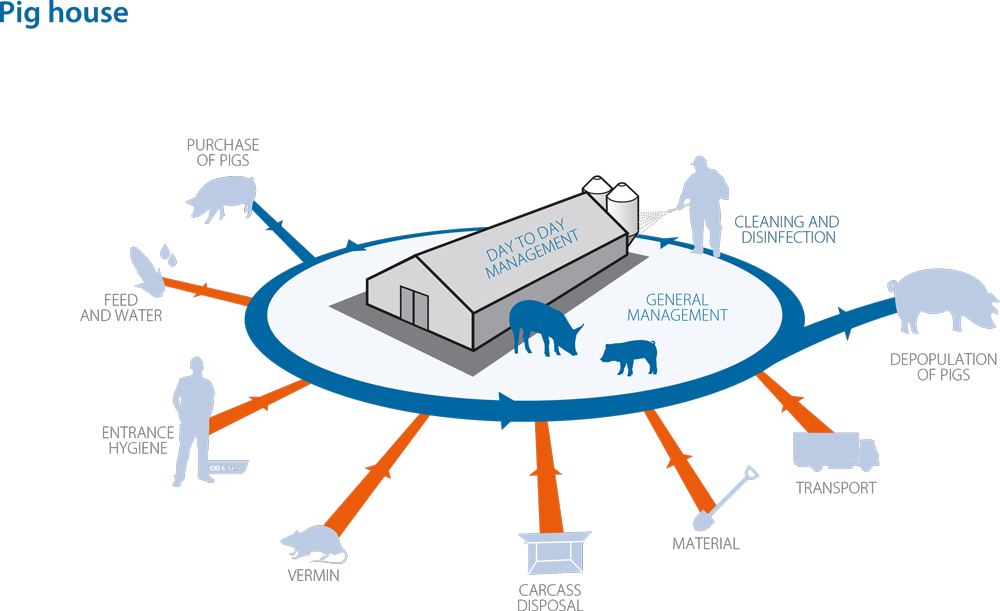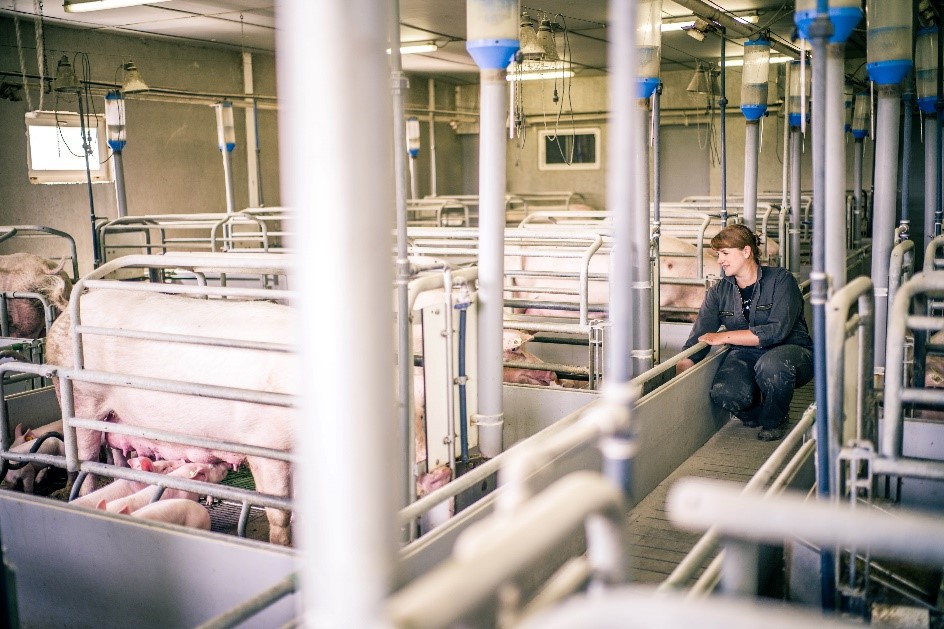To grow your animals in the most efficient way, it’s very important to maintain an adequate day-to-day management at your farm. First of all, an healthy environment is crucial to keep you animals healthy and together with that taking care of all the tools and equipment used in the farm is really critical to avoid any contamination between different animal groups. On top of this, you should also check your animal houses on daily basis to notice any abnormalities. All those things will give you the opportunity to intervene fast and to give your animals all the chances they need to becoming strong and healthy.

BUILDING ENVIRONMENT
Pigs must always be placed in a clean, disinfected and dry building with
-
An optimal temperature
-
Good air quality: bringing fresh air in the building with an appropriate ventilation system
-
Relative humidity between 60 and 80 %
-
Not too dry because this can cause irritation to the lungs of the animals
-
Not too wet because excessively damp air can cause condensation and will provide a climate which favors the growth of bacteria/fungi
-
-
As less dust as possible: dust can be a source of pathogens
-
Acceptable level of manure in the storage to avoid that pigs come in contact with harmful gasses

TOOLS AND EQUIPMENT
All tools and equipment that are used to treat the animals in the pig stables, such as syringes or floating panels, should be cleaned and disinfected always. Tools and equipment for cleaning buildings such as shovels and brooms for example should be used exclusively for a single building or section. This avoids contamination between the different groups of animals. All tools and equipment used by outsiders, should be disinfected, where possible. This definitely applies to anything which is going to come into contact with other animals, either directly or indirectly.
CHECKING THE ANIMALS

Recording = checking!
You should give all the animals a thorough inspection at least once a day. A systematic inspection of this kind will ensure that any problems can be spotted sooner and dealt with.
Don’t forget to have a schedule for daily operations as an aid for yourself, your staff and any replacements. A clear communication between personnel is therefore really important.
If you notice any sick animals, these should be
-
Separated and isolated as quickly as possible because they constitute a possible source of infection and disease can spread quickly. The advice is to segregate these animals in a fully closed sick bay, in a separate room or building. When entering this area, you should always wear separated clothes, shoes and disposable gloves.
-
Treated appropriate or should be euthanized when it is expected that the animal has a low probability of becoming a profitable fattening pig.

Sick animals should never be returned to the group again!
